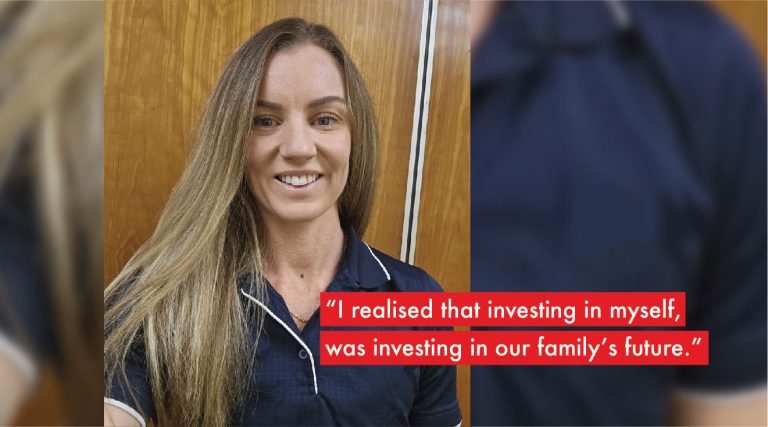Do you get the Sunday evening sinking feeling? Feeling stuck in your job and frustrated that your enthusiasm and talents are being wasted in the wrong place? Do you daydream of a fresh career, but making the leap seems just too frightening?
You just need a little career guidance and we are here to help.
We’ve just come across some great tips at Helpguide.org on overcoming that fear to tackle the leap to a new career. Advice on the steps you can take to getting yourself a job that matches your interests and a plan to move you from unfulfilled and unhappy to the career you dream of.
Sound good? Then read on for Part Two of the good stuff.
Finding the right career tip 1: Identify occupations that match your interests
So how do you translate your interests into a new career? With a little research, you may be surprised at the careers that relate to many of the things you love to do.
Career tests
Different online tools can guide you through the process of self-discovery. Questions, quizzes, and personality assessments can’t tell you what your perfect career would be, but they can help you identify what’s important to you in a career, what you enjoy doing, and where you excel. One example, frequently used by universities and the U.S. government, is the RIASEC/Holland interest scale. It outlines six common personality types, such as investigative, social, or artistic, and enables you to browse sample careers based on the type of personality you most identify with.
Researching specific careers
If you have narrowed down some specific jobs or careers, you can find a wealth of information online, from a description of positions to average salaries and estimated future growth. This will also help you figure out the practical priorities: How stable is the field you are considering? Are you comfortable with the amount of risk? Is the salary range acceptable to you? What about commute distances? Will you have to relocate for training or a new job? Will the new job affect your family?
Find out what you’re eligible for
Get support and information from others
While you can glean a lot of information from research and quizzes, there’s no substitute for information from someone currently working in your chosen career. Talking to someone in the field gives you a real sense of what type of work you will actually be doing and if it meets your expectations. What’s more, you will start to build connections in your new career area, helping you land a job in the future. Does approaching others like this seem intimidating? It doesn’t have to be. Networking and informational interviewing are important skills that can greatly further your career.
You may also consider career counselling or a job coach, especially if you are considering a major career shift. Sometimes impartial advice from others can open up possibilities you hadn’t considered.
Finding the right career tip 2: Evaluate your strengths and skills
Once you have a general idea of your career path, take some time to figure out what skills you have and what skills you need. Remember, you’re not completely starting from scratch, you already have some skills to start. These skills are called transferable skills, and they can be applied to almost any field. Some examples include:
- management and leadership experience
- communication (both written and oral)
- research and program planning
- public speaking
- conflict resolution and mediation
- managing your time effectively
- computer literacy
- foreign language fluency
Tips for discovering your transferable career skills
- Don’t limit yourself to experiences only at work. When you are thinking about your skills, consider all types of activities including volunteering, hobbies, and life experiences. For example, even if you don’t have formal leadership or program planning experience, founding a book club or organizing a toy drive are ways that you have been putting these skills into practice.
- List your accomplishments that might fit in. Don’t worry about formatting these skills for a resume at this point. You just want to start thinking about what skills you have. It can be a tremendous confidence booster to realize all of the skills you’ve developed.
- Brainstorm with trusted friends, colleagues, or mentors. They may be able to identify transferable skills you’ve overlooked or help you better articulate these skills in the future.
- Uncover more transferable skills by taking the online tests listed in the Resources section below.
Finding the right career tip 3: Develop your skills and experience
If your chosen career requires skills or experience you lack, don’t despair. There are many ways to gain needed skills. While learning, you’ll also have an opportunity to find out whether or not you truly enjoy your chosen career and also make connections that could lead to your dream job.
Gaining career skills:
- Utilize your current position. Look for on-the-job training or opportunities to do projects that develop new skills. See if your employer will pay part of your tuition costs.
- Identify resources in the community. Find out about programs in your community. Community colleges or libraries often offer low cost opportunities to strengthen skills such as computers, basic accounting, or how to start a business. Local Chambers of Commerce, Small Business Administrations, or state job development programs are also excellent resources.
- Volunteer or work as an intern. Some career skills can be acquired by volunteering or doing an internship. This has the added benefit of getting you in contact with people in your chosen field.
- Take classes. Some fields require specific education or skills, such as an educational degree or specific training. Don’t automatically rule out more education as impossible. Many fields have accelerated programs if you already have some education, or you may be able to do night classes or part-time schooling so that you can continue to work. Some companies even offer tuition reimbursements if you stay at the company after you finish your education.
Finding right career tip 4: Consider starting your own business
If you’re getting worn down by a long commute or a difficult boss, the thought of working for yourself can be very appealing. And even in a slower economy, it’s still possible to find your perfect niche. Depending on the specialty, some companies prefer to streamline their ranks and work with outside vendors. However, it is especially important to do your homework and understand the realities of business ownership before you jump in.
- Make sure you are committed to and passionate about your business idea. You will be spending many long hours getting started, and it may take a while for your business to pay off.
- Research is critical. Take some time to analyze your area of interest. Are you filling an unmet need? Especially if you are considering an online business, how likely is your area to be outsourced? What is your business plan, and who are your potential investors? Learn more in the Resources section below.
- Expect limited or no earnings to start. Especially in the first few months, you are building your base and may have start-up costs that offset any profit initially. Make sure you have a plan on how to cope during this period.
Final tips for career changers
- Pace yourself and don’t take on too much at once. Career change doesn’t happen overnight, and it is easy to get overwhelmed with all the steps to successfully change careers. However, you will get there with commitment and motivation. Break down large goals into smaller ones, and try to accomplish at least one small thing a day to keep the momentum going.
- Don’t rush into a change because of unhappiness in your current job. If you are stressed and unhappy in your current job, or unemployed, you might be feeling a lot of pressure to make a quick change. However, if you don’t do enough research, you might end up in an even worse position than before, with the added stress of a new position and new learning curve.
- Ease slowly into your new career. Take time to network, volunteer, and even work part-time in your new field before committing fully. It will not only be an easier transition, but you will have time to ensure you are on the right path and make any necessary changes before working full-time in your new field.
- Take care of yourself. You might be feeling so busy with the career transition that you barely have time to sleep or eat. However, managing stress, eating right, and taking time for sleep, exercise, and loved ones will ensure you have the stamina for the big changes ahead.








